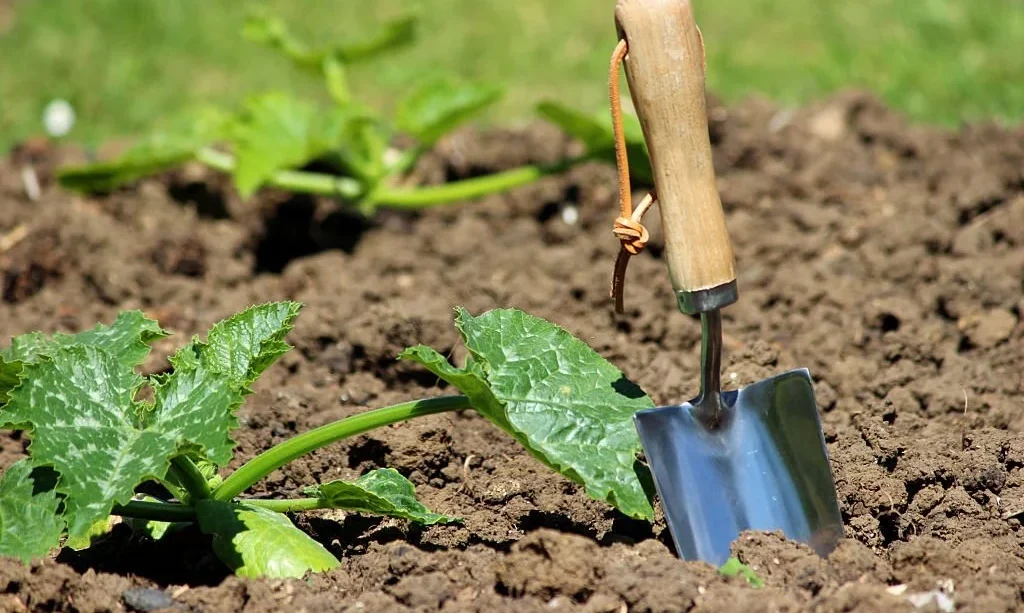Imagine walking through a lush garden, the air filled with the sweet aroma of fresh vegetables. Zucchini, with its vibrant green color and versatile nature, is a favorite vegetable among gardeners. To ensure healthy growth and a bountiful harvest, it’s crucial to know how far apart to plant zucchini. Proper spacing allows each plant to thrive and reach its full potential. In this simple guide, we’ll explore the importance of zucchini plant spacing and provide guidance on determining the appropriate distances for successful growth.
Zucchini Plant Spacing
Zucchini plants are known for their vigorous growth, producing large leaves and sprawling vines. Giving them enough space to spread out is essential for their overall health and productivity. Adequate spacing allows for better airflow around the plants, reduces the risk of diseases, and ensures that each plant receives sufficient sunlight for photosynthesis.
Determining Spacing Requirements
Several factors come into play when determining the spacing requirements for zucchini plants. Consider the following factors to ensure the appropriate spacing:
- Variety: Different zucchini varieties have varying growth habits. Some are bush types, which tend to stay compact, while others are vining types that spread and require more space.
- Soil Fertility: Rich, well-amended soil can support more vigorous growth. If your soil is exceptionally fertile, you may need to provide slightly wider spacing between plants.
- Available Garden Space: Evaluate the size of your garden and the number of zucchini plants you intend to grow. This will help you determine how much space you can allocate to each plant.
To find specific spacing recommendations for the zucchini variety you’re growing, refer to the information provided on the seed packet or plant tag. These resources often include guidelines tailored to the specific needs of each variety.
In the next sections, we’ll delve into general spacing guidelines for zucchini plants and provide tips on planting them for optimal growth. Get ready to create the perfect environment for your zucchini to thrive!
- You will receive (1) 1.5-cubic foot bag of potting soil per purchase.
- Ready for immediate use, no additional ingredients are required. This bag is designed to be ready for planting upon purchase. Plant directly into bag.
- Ingredients like aged forest products and peat moss help increase effectiveness in retaining moisture directly around the roots of plants. Sandy loam, also in Ocean Forest, has excellent drainage properties that help prevent root rot, a common problem when roots sit in stagnant water.
- Ideal for container gardens, houseplants, trees, shrubs, roses, and even seedlings. The rich ingredients in Ocean Forest provide the proper environment for seedlings to become vigorous plants.
- Ingredients include 50-60% aged forest products, sphagnum peat moss, perlite, sandy loam, and fertilizer. Derived from fish emulsion, crab meal, shrimp meal, earthworm castings, bat guano, kelp meal, and oyster shell.
Spacing Guidelines for Zucchini Plants
To ensure healthy growth and maximize your zucchini harvest, it’s essential to follow appropriate spacing guidelines. Here are some general recommendations for spacing zucchini plants:
- Bush Varieties: For compact bush varieties, leave approximately 2-3 feet (60-90 cm) of space between each plant. This allows the plants to spread out their foliage and helps prevent overcrowding.
- Vining Varieties: Vining zucchini plants require more space to accommodate their sprawling growth. Leave about 3-4 feet (90-120 cm) between plants to allow for their vigorous vines to spread without crowding neighboring plants.
- Row Spacing: When planting zucchini in rows, leave around 4-6 feet (120-180 cm) of space between rows. This provides ample room for easy access and maintenance.
Remember that these spacing guidelines are general recommendations, and specific varieties may have slightly different requirements. Always refer to the information provided on the seed packet or plant tag for the most accurate spacing instructions.
Planting Zucchini
Follow these simple steps to plant your zucchini and give them the best start in your garden:
- Soil Preparation: Choose a sunny location with well-draining soil. Prepare the soil by loosening it with a garden fork or tiller and removing any weeds or debris.
- Creating Mounds or Rows: If you prefer mounds, create small hills of soil about 12-18 inches (30-45 cm) in diameter and 4-6 inches (10-15 cm) tall. Space the mounds according to the recommended plant spacing for your variety. Alternatively, if you’re planting in rows, dig shallow trenches about 1-2 inches (2.5-5 cm) deep and space them accordingly.
- Planting the Zucchini: Place the zucchini seedlings or seeds into the prepared mounds or trenches, following the recommended spacing for your chosen variety. Cover the roots or seeds with soil, gently firming it around the base.
- Watering: After planting, water the zucchini thoroughly to settle the soil around the roots. Maintain consistent moisture throughout the growing season, ensuring the soil remains evenly moist but not waterlogged.
- Miracle-Gro Water Soluble Plant Food Vegetables and Herbs includes natural ingredients
- Feeds instantly to promote big and beautiful results (vs unfed)
- Use Miracle-Gro soil plus plant food for even more harvest (vs unfed)
- Apply with a watering can or Miracle-Gro Garden Feeder
- Miracle-Gro Water Soluble Plant Food Vegetables and Herbs is great for tomatoes, squash, peppers, cucumber, carrots, basil and other herbs and vegetables
Caring for Zucchini Plants
Proper care is crucial for healthy zucchini plants and a successful harvest. Here are some essential tips for caring for your zucchini:
- Watering: Zucchini plants require regular watering, especially during dry spells. Aim to provide about 1 inch (2.5 cm) of water per week, either through rainfall or supplemental irrigation.
- Fertilization: Feed your zucchini plants with a balanced organic fertilizer according to package instructions. Apply the fertilizer a few weeks after planting and continue to fertilize every 4-6 weeks throughout the growing season.
- Supporting Vining Varieties: If you’re growing vining zucchini varieties, consider providing support for the vines, such as trellises or stakes. This helps keep the vines off the ground, reduces disease risk, and makes harvesting easier.
- Pruning: To control the size and promote better airflow, you can selectively prune zucchini plants. Remove any damaged or diseased leaves, as well as excessive growth that may hinder airflow and encourage disease.
- Pest and Disease Management: Monitor your zucchini plants for pests such as aphids, squash bugs, or powdery mildew. Implement organic pest control methods or consult with your local extension office for guidance on managing common pests and diseases.
- Weed Control: Regularly remove weeds around your zucchini plants to reduce competition for nutrients and water. Use mulch or hand-weeding to keep the area around the plants weed-free.
Conclusion
Proper spacing is essential for the healthy growth and productivity of your zucchini plants. By following spacing guidelines specific to your chosen variety, you create an environment that allows each plant to thrive. Remember to provide adequate spacing between plants, whether they are compact bush varieties or sprawling vining types.
By planting your zucchini with the appropriate spacing, providing them with proper care, and addressing any pest or disease issues promptly, you’ll be rewarded with a bountiful harvest of delicious zucchinis. So get out there, give your zucchinis the space they need, and enjoy the abundance of this versatile and nutritious vegetable in your garden!






